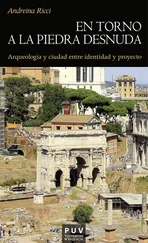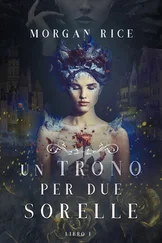I was not alone in feeling this sadness. For every person that I treated for burns in the months following the fire, another came to me with an ailment he could not name except to call it "a melancholy of all the body and mind." I laid red balsam and barley water on the burns, but I did not know what to lay upon the melancholy. More than once my thoughts returned to Wise Nell and her blood of swallows. In short, I began to wonder whether all cures of sadness do not have within them some element of magic that is beyond my understanding.
Listening to the lute maker, and the skittering of rain on my windows I, one evening, turned my hands round and began to trace the lines on my palms, to see whether I could read a future there, but I could not, for no one had taught me how to interpret the creases. I noticed, however, that the love-line – particularly that of my left hand – divides very soon after starting and becomes two. This discovery not only made me smile, it also encouraged me to believe that other accurate knowledge was indeed written on my hand if only I could read it correctly and so began, in an indolent sort of way, a search for a chiromancer which I soon abandoned, it seeming to be the case that full half of everyone left in London professes and calls himself a chiromancer and for small sums of money will snatch up any hand and claim to see in it some glorious destiny. One told me that I would discover a cure for old age, another that I would be saved from drowning by the eating of a quail pie "because that you inadvertently ate the feathers too, Sir, and so it is they will buoy you up above the waves", and another that I would be remembered for ever for a deed I had not yet done or a journey I had not yet made. I was at first very adept at pretending to believe such predictions, but then this pretence suddenly wearied me and I became indifferent to all versions of my future and able, as the autumn passed and the winter came on, to live each day for itself and not to waste too much time dreaming.
I had no word from the King. I did not expect any, for after the burning of the house in Cheapside he had no immediate means of finding me, no way of knowing, even, that I had not perished in the fire. I could have written to him, but I did not. For it seemed to me, as my fortieth birthday approached, as if I had spent so much of my swiftly passing existence composing letters to the King in my mind that I had run out of words.
And this is what I believed: I believed that if, one day, the King wanted to find me, he would find me. I did not know how. I could not even imagine how. I only knew that he would. And that it would not prove to be very difficult for him, for such is his power that surely no corner of his Kingdom is invisible to him and no person within it beyond his reach?
One day in early spring, being invited to a little supper party by a lawyer I had cured of an ulcer, I took down my navy blue and cream coat (cleaned and restored by Rosie to its former smartness) and the matching silk breeches to put them on. Having no looking glass in my rooms above the lute-maker, I had become somewhat neglectful of my appearance, only now and then catching sight of myself reflected in a window pane. Thus I had not seen what I now saw in putting on my suit: I had grown most peculiarly thin. The waist of the breeches was too large for me by more than two inches, so that the wretched things would not stay up, and, when I put the coat on my back, it hung out from my body like a cape. I pulled up my shirt and regarded my stomach. It appeared shrunken and a little wrinkled and all the moths on it, having lost so much of their territory, were crowded up together in a dense mass.
I sat down upon one of the four chairs with which these rooms are furnished (a chair so delicate and spindly I often wonder whether the lute-maker did not manufacture it himself as a diversion from hollow things) and tried to read my altered appearance, like the reading of a palm, for what it signalled and what it portended. For in the whole of my life I have never been thin. I was a podgy baby, so my mother used to tell me, and the moire suit I wore as a boy was always stretched so tight across my chest that I remember minute buttons exploding from it sometimes when I laughed. Even as a student I was fleshy and by the time of the fifth beginning to this story I was, as you will recall, very comfortingly fat. Now, all the flesh was falling away and every bone in me being slowly unsheathed and made visible. It was impossible not to think of Pearce wasting to stick and sinew inside his clothes, and so as I sat there – a thin man on a thin chair – I began to consider the possibility that I was dying.
I examined my memory for aches and hurts. I listened to my own heartbeat and to the noise of my breathing. I got up and pissed a little into a pot and stared at my urine, looking for cloudiness and beads of blood, then smelled it, like a connoisseur of wine, sniffing for acid and putrefaction. Then, forgetting entirely about the lawyer's supper party, I took off the too-large clothes and lit a quantity of candles and placed them near to the window and so was able to see myself mirrored in it. Anyone on the river looking up would have chanced upon a most hilarious sight: Merivel, as nude as Adam, peering at parts of his anatomy – his tongue, his armpits, his nipples, his nose, his groin and his knees – for signs of swelling or discoloration, shivering a little in the cold March evening and appearing altogether as scrawny and fanatical as the original naked Quaker of the burning coals.
I could find nothing wrong with me. My heart sounded strong, my body was unmarked, except by its loss of fat and by time itself. I put on my nightshirt and lay down on my narrow bed and thought of everything that had happened to me since the fire and I saw that my life had become a somewhat solitary thing and that within it there was one abnormal phenomenon which was that now and again I would see and hear things that were not there. One of the things I heard was a dog yapping on the stairway. Once, I had been so certain that the creature was there that I had opened my door and expected it to come in wagging its tail, but there was no sign of any dog whatsoever. And the things I saw were no less troubling and inexplicable: I saw, growing on the slimy steps by Southwark Bridge, a clump of primroses which appeared so real to me that I bent down to pick one, but there were no flowers growing there, only a pale yellow handkerchief carelessly dropped by a fop pirouetting into a boat. Another time, I saw in the hand of one of my woman patients a lump of black soap, but when I uncurled her fingers her palm was empty.
I lay and considered what this hallucinatory tendency might portend – whether a weakening of my brain or the unlikely arrival in me of visionary powers. But I could come to no conclusion about it and after a while, with my eyes half open on the flickering candlelight, I fell into a dream of Bidnold, believing myself to be there, lying on the carpet from Chengchow and smelling woodsmoke and sunlight and the perfume of wealthy women. And the whole of this dream was filled with such magic that when I woke from it, to see all the candles dripping grease onto the floor, I did not move one muscle of my body, but only closed my eyes and tried to dream it again.
And after this night, what took hold of me was not any illness or sliding towards death, but a colossal epidemic of dreaming, so that night after night I floated into Bidnold and landed light as a plume and brushed the surfaces of things -the polished tops of tables, the stretched brocade of scarlet sofas, the milky satin of cushions, the tooled leather spines of books, the dented pewter handle of the coal scuttle – and then was carried by the wind out into the sky and hung like a ghost above the park, filling myself with colour so that I became fat with it, with the purple of the beeches and the lush green of the grass. There were no people in these dreams, yet they were dreams of the most sensual kind from which, when the morning came, I did not want to be parted. So I began to prolong them into the day, rising later and later, long after the lute-maker had begun work and the noise on the river had reached to its morning crescendo. I was addicted to them, as to an opiate, and went about my physician's round drugged by the memory of them and by the great quantity of sleep I was inflicting upon myself. I knew that I should be trying to shake off this sickness of dreaming, but I did not seem to have the will to do it.
Читать дальше











